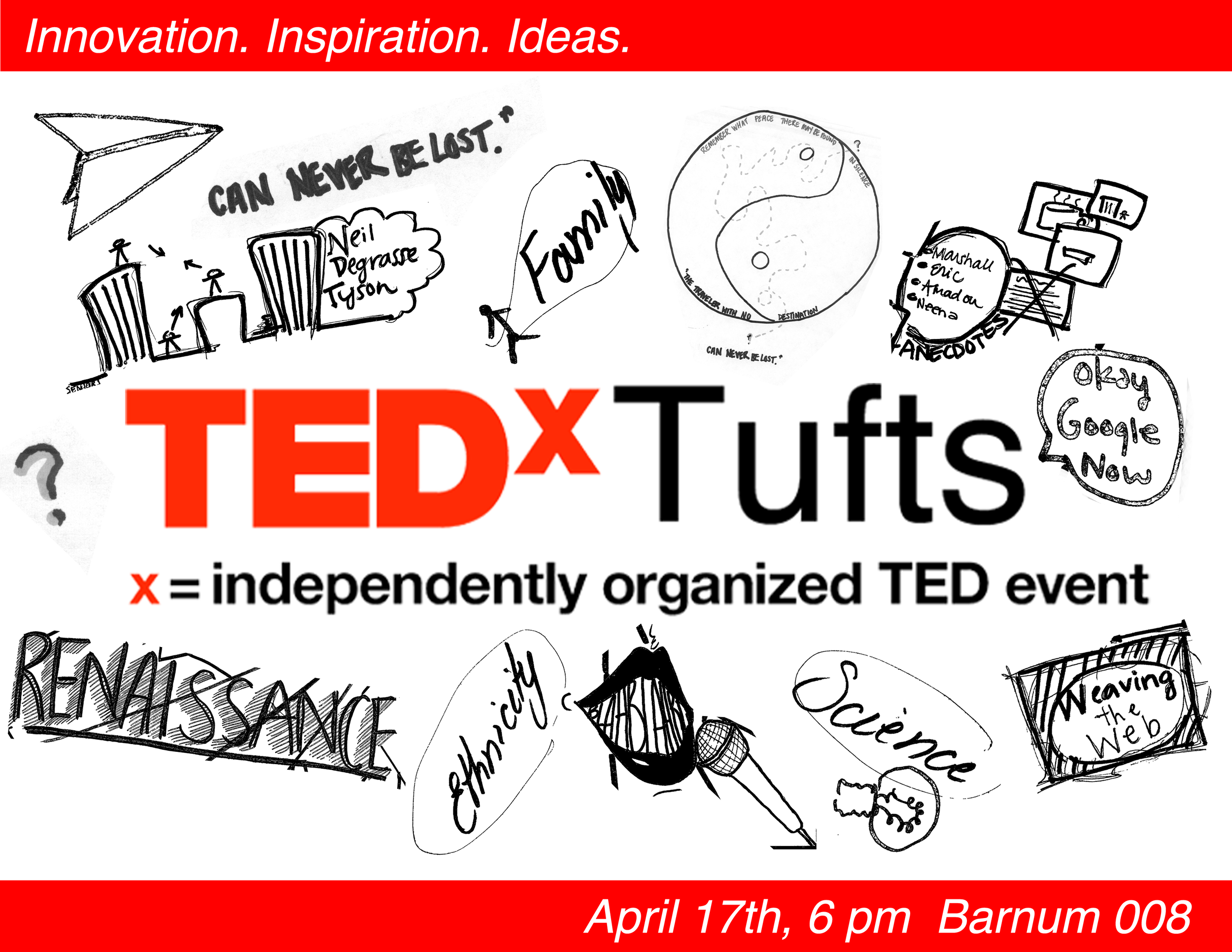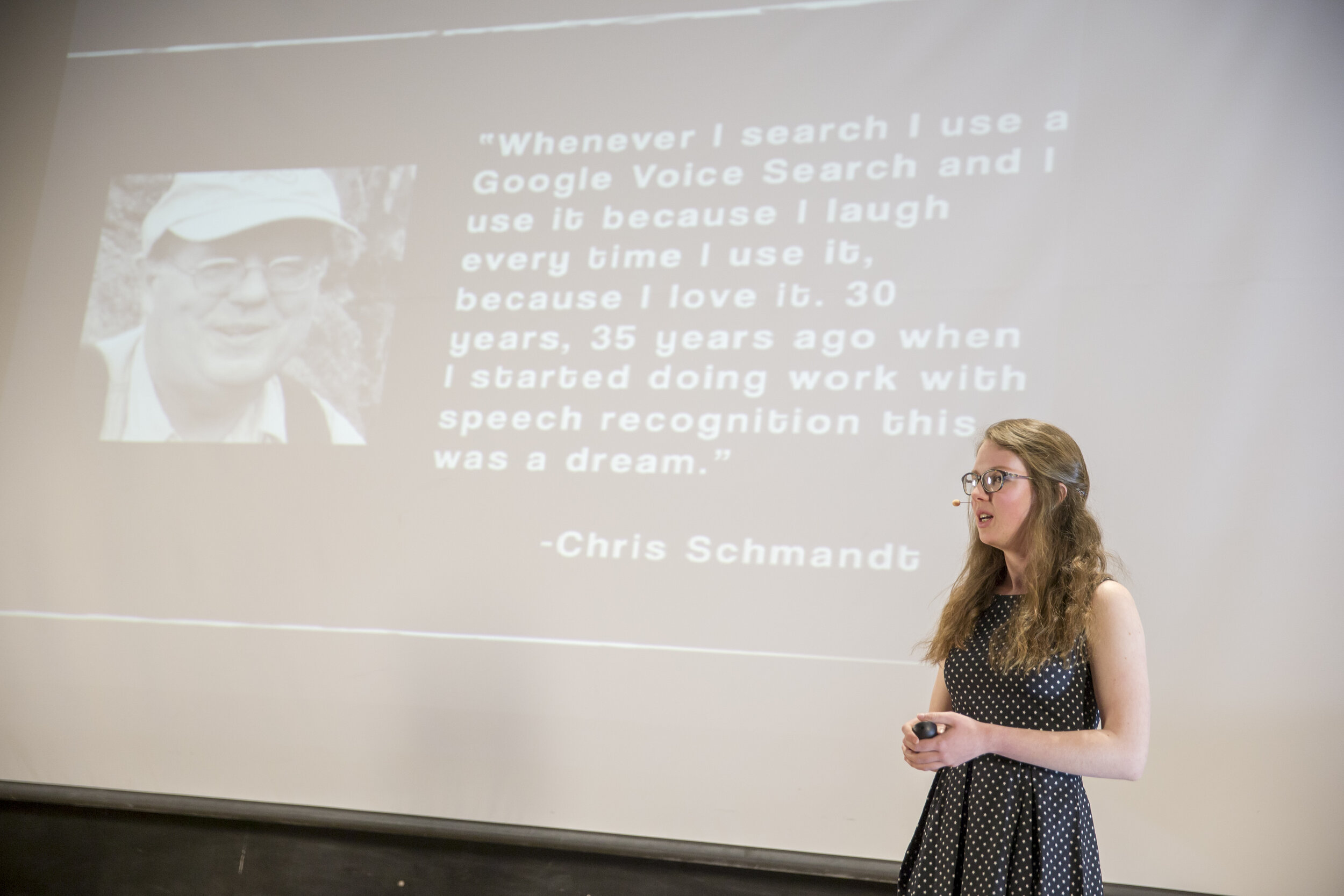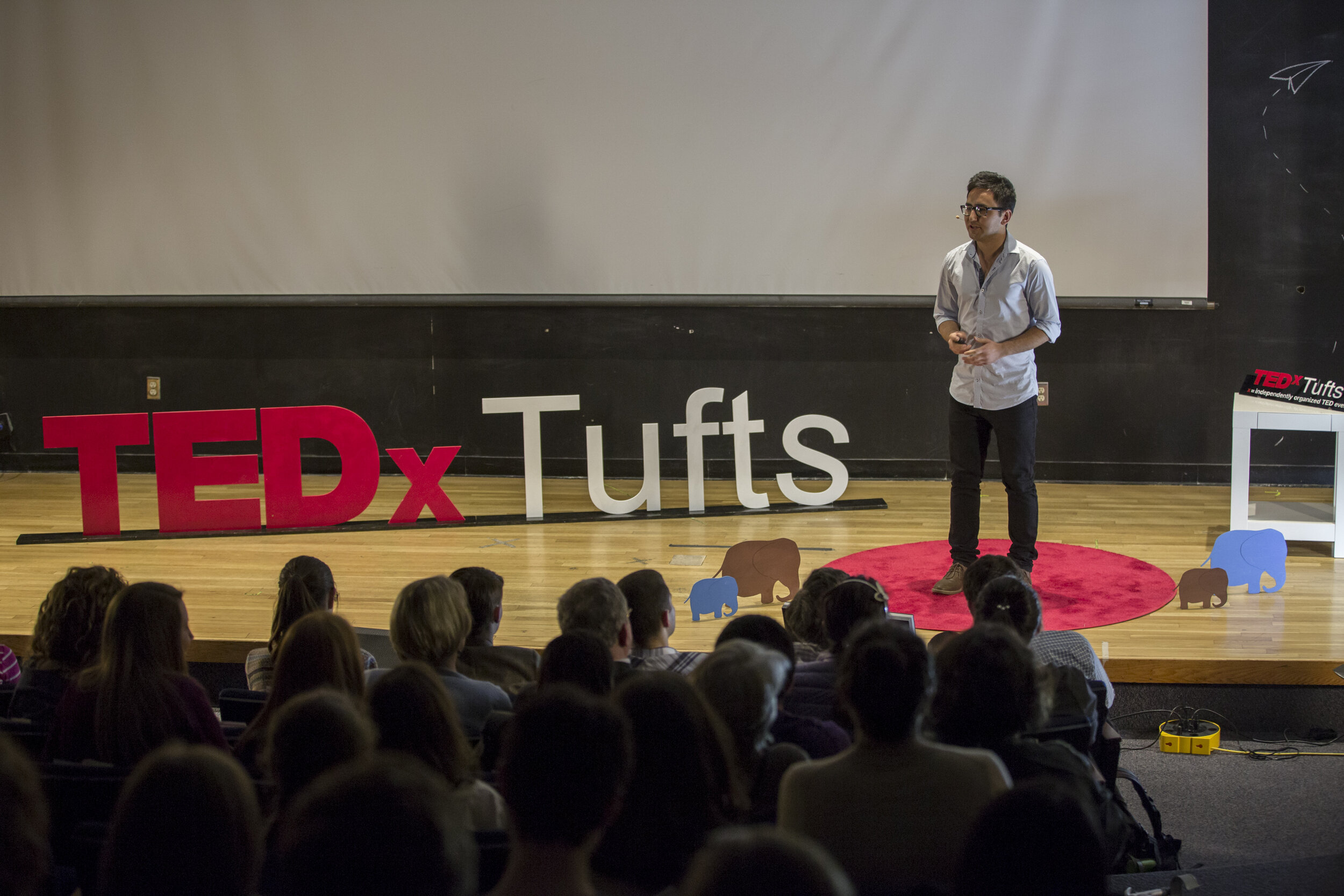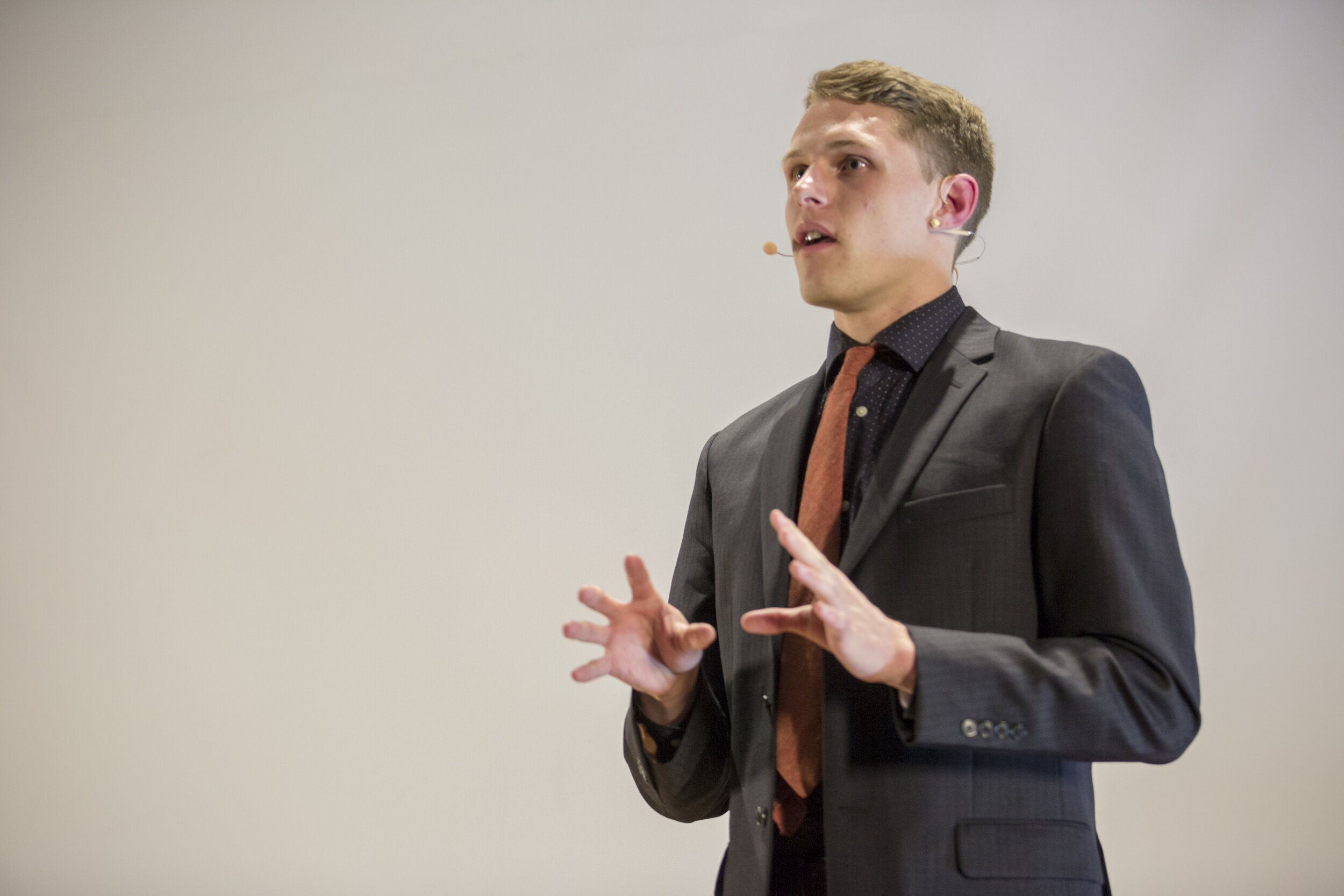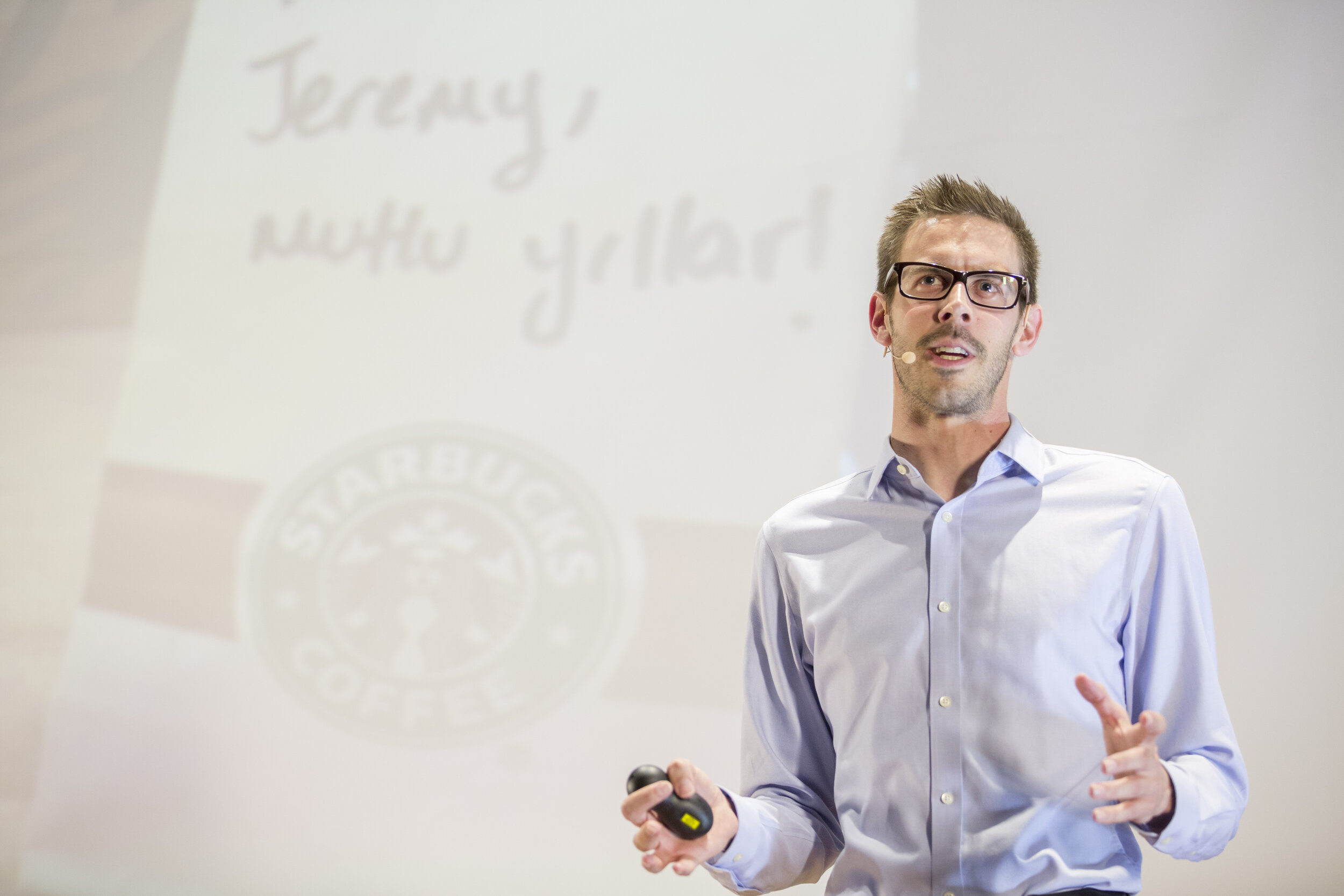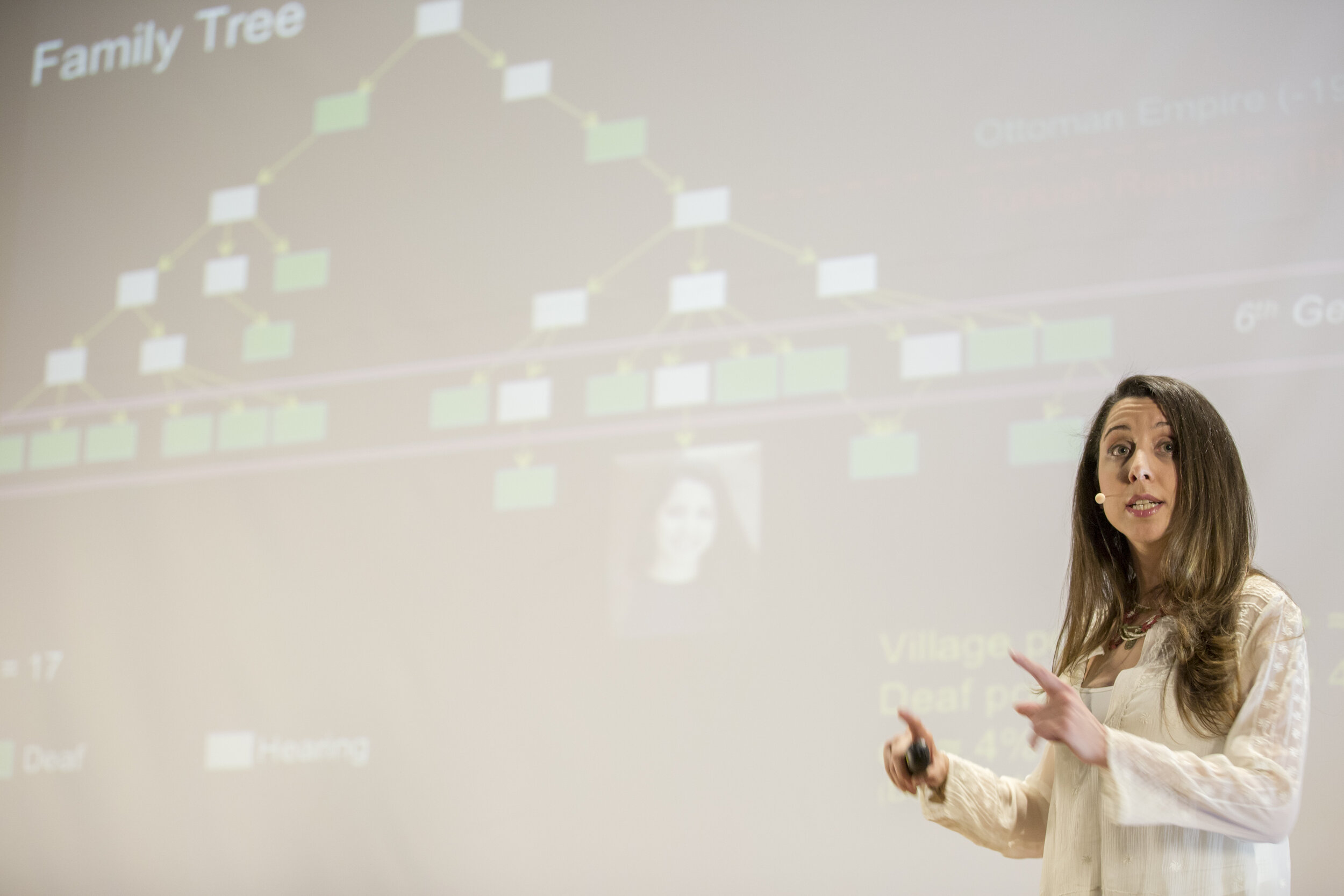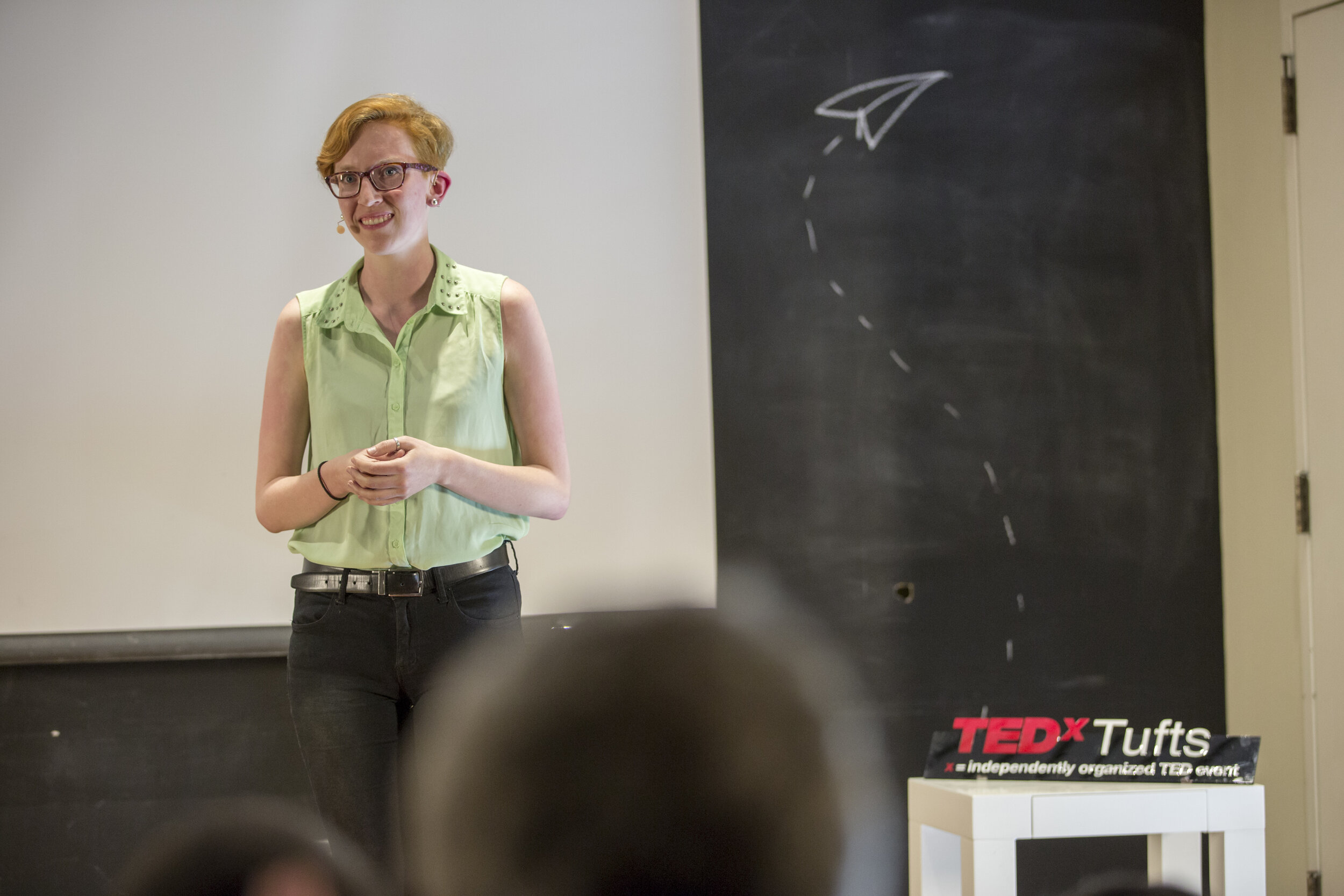
Let Thoughts Take Flight
2015
Talks:

As millennials of today are groomed to be the next generation of transformational leaders of tomorrow, how do we transition from an antiquated male-dominated business world to one of gender equality, which fosters more collaboration? Angeli Gianchandani highlights the necessity for female leadership to become a priority of core business.

What happens when we take people we admire off a porcelain pedestal? Marcella Hastings explores the value in humanizing these mentors and advisers and recognizing that these pedestals are actually made of "bricks and bits of sand and glue and a couple coats of paint."

Michael Lustgarten probes at the science behind living forever. Michael studies serum metabolomics to investigate mechanisms that underlie muscle mass and physical function in older adults.

Between training at the Wudang Kung Fu Academy and trekking 1200 miles through rural China on a motorcycle, James Kiefner discovered the imperfect route through the Taoist ideal of the perfect, uncarved block.

Rabia Ergin has looked to the Central Taurus Sign Language, a village sign language native to her ancestors of rural Turkey, to study the evolution of human communication and its complexities, such as syntax and compound words.

Gracie McKenzie asserts that Plato would have liked Siri. Modern technology has dramatically influenced the way in which humans communicate. In a world with dozens of platforms for exchanging information, is the sound of the human voice going anywhere?

While traveling abroad, you are an ambassador of your homeland and have an incredible opportunity to build or destroy bridges between “us” and “them”. During his travels, Jeremy Blaney has tried to affect the former in the simplest of ways: by going somewhere familiar, a Starbucks, and using a mutual love of coffee as a starting point to dialogue about life in our respective corners of the world. The results have reaffirmed a deep-seeded belief: we’re one cup of coffee away from building a better and more understanding world.

As a buzzword in today's society, privilege comes with a host of associations, each from a unique perspective. Abuzar Royesh reflects on how his deep-engrained ethnic biases influenced his self-perception of privilege. He wants to change the conversation about privilege, which currently does nothing but create boundaries and strain relationships, in order to see individuals for who they really are.

A professor, librarian, and student come together to piece apart how Tufts University, as a comprehensive research university with an "active citizen" mentality--not to mention whose mascot, Jumbo, is the most famous animal in history--can combat the ivory trade.

